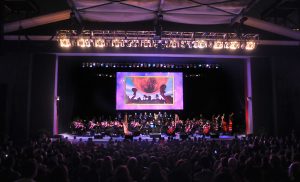

By David Obenour
Providing the soundtrack for a video game is every bit the responsibility of working with a Hollywood blockbuster. In fact, the two are even starting to look more and more alike with games like Beyond: Two Souls featuring the likenesses of Ellen Page and Willem Dafoe.
But as any gamer can tell you, video game music has been masterfully capturing heightened tension, murky dungeons and cartoony bliss since before Ellen Page was even born. One of the best and most consistent examples of this from console to console has been Nintendo’s classic series, The Legend of Zelda. Celebrating the franchise’s 25th anniversary two years ago, the Zelda games both old and new continue to engage new generations’ eyes and ears through its gameplay, storytelling and soundtracks.
Seeking to bring these songs to a deserving stage, Jason Michael Paul Productions have scored a selection of the Zelda series’ most memorable songs and formatted them within a traditional four-movement symphony. Heading out on an international tour this fall and into the winter, producer Jason Michael Paul was kind enough to answer a few questions about The Legend of Zelda: Symphony of the Goddesses for GhettoblasterMagazine.com.
Why do you think there is such a big, passionate audience for video game music? Why such a draw?
If you think about the thousands of games that have come out over the years and the countless hours that are spent playing and listening to these catchy melodies it is no wonder that video game music is popular. Not to mention the talents of the composers that are creating this wonderful music to accompany the amazing FMV (full motion video) and gameplay footage. The stories are told with the music. These two go hand in hand. I am not satisfied as we still have a lot of work to do in bringing video game music to the masses.
I have to imagine that Symphony of the Goddesses is somewhat unconventional for the theaters and halls in which these performances are to be held. What has the response been like from the in-house contacts across the country?
The response has been favorable amongst personnel. Many presenters and personnel who present my concerts are skeptical, but after they go through it they see the benefit and how this is attracting a new generation of audiences. It can only be positive as many concertgoers are new to the venues. Many of the people who come are attending a concert for the first time, let alone a symphony concert. It is this type of creative programming that is breathing new life into these concert halls. The hope is that they will visit the concert halls to see other symphony shows. We are contributing to the arts by ensuring that orchestras are relevant for generations to come.
What was the overall feel like in forming the orchestra that would perform Symphony of the Goddesses? Was there a lot of interest in the material from classical players or did they have to be won over on the music merits?
It is a wonderful feeling to work with these orchestras. The size of the orchestra and choir has never been compromised as part of my show. For Zelda it is 66 musicians and a 24 four SATB (soprano, alto, tenor, bass) choir. Many musicians are skeptical at first but they are believers after standing ovations and an attentive audience. Orchestra members can’t deny that the music is fun to perform and very well done. It is all new, so there is no reinterpreting this modern music. Chad Seiter, our Music Director and the man responsible for the arrangements, is no stranger to writing music. He knows how to get the most out of an orchestra, and the arrangements are smart.
It’s interesting to see how gaming has grown up with us, as the median age of a gamer keeps reaching later and later in life. Do you think this shows in the kind of audiences that Symphony of the Goddesses’ attracting?
That is the beauty of video games and ultimately video game music. Fans of Zelda and video games in general spans many generations. I have found that young and old are attending our shows and walking away with an even deeper appreciation of video games as art. My job as a producer is to not alienate any age group but rather appeal to all ages. You don’t have to be a video game enthusiast to appreciate my concerts, and that is what I strive for ultimately. I think that everyone can appreciate the shows I create based on the creative integrity and production as a whole.
Did you have to make more additions and embellishments to earlier games’ in the series music given their limited scope provided by the technology?
There are no additions or embellishments. The thing that makes the earlier titles wonderful is the nostalgia factor. We have tried to show how the technology and the game has evolved. I think that by exhibiting this it is important and provides a rich context for where games have come and continue to go. I don’t try to lose that. After all, the foundations are there. We are simply expanding upon that and telling the story of a franchise that has existed for over 25 years. It is growth and something to be appreciated. It is relevant to us young and old, and that is what makes video games or movies for that matter so much a part of who we are.
Symphony of the Goddesses is arranged and programmed within the parameters of a traditional classical symphony – did that feel like a fairly natural fit for the music? I’ve read that some music has been added, though with the blessing of franchise producer, Eiji Aonuma and composer, Koji Kondo.
We felt the best way to tell the story of The Legend of Zelda was through a four-movement symphony. It is the only four-movement symphony written for a video game, and we are proud of that fact! Aonuma-san, Kondo-san, and Miyamoto-san are vital to the show. I was fortunate to work with them very closely in the development of The Legend of Zelda: Symphony of the Goddesses. Everything that you see as part of the show is with the blessing of these amazing men. As a producer, I strive to make the show as authentic and first-party as possible.
Can you talk a little about the video aspect? How the clips were chosen and how they’re integrated within the show?
The video has been pulled from the Nintendo library. We were fortunate enough to have total access to these assets in the making of the concert. In creating the show we figured out the music first and then edited the visuals to sync with the music.
People involved with the games or random celebrities?
Many of the creatives involved in the franchise have attended the shows. Often times we will get celebrities to our show. There are millions of Zelda fans including me.
I noticed that there are two stops in Mexico on this tour and wondered what brought those about? Are there any plans to do any other international dates?
We actually have more than two cities in Mexico where the show will be performed. Latin America is a huge market. We are very thankful for the fans there. The show has been performed all over the world. Sydney, Australia; London, England; Paris, Fance; Berlin, Germany.
(Catch The Legend of Zelda: Symphony of the Goddesses on…
Oct 26 at 8:00 PM in Columbus OH at the Ohio Theatre
Oct 27 at 7:30 PM in Cincinnati OH at the Cincinnati Music Hall
Nov 1 at 8:00 PM in New York City NY at The Theater at MSG
Nov 2 at 8:00 PM in Boston MA at The Wang Theatre
Nov 21 at 8:00 PM in Baltimore MD at the Meyerhoff Symphony Hall
Nov 22 at 8:00 PM in Chicago IL The at the Chicago Theatre
Nov 23 at 8:00 PM in Milwaukee WI at Riverside Theatre
Dec 1 at 8:00 PM in Monterrey MX at Arena Monterrey
Dec 3 at 7:30 PM in San Antonio TX at The Majestic Theatre
Dec 5 at 8:00 PM in Guadalajara JAL at Auditorio Telmex
Dec 9 at 8:30 PM in Mexico City MX at Auditorio Nacional
Dec 14 at 8:00 PM in San Jose CA at San Jose Civic
More information is available at http://zelda-symphony.com)



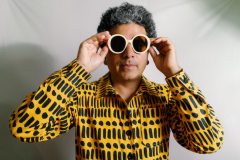
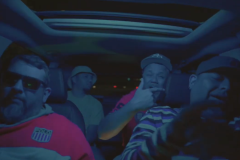
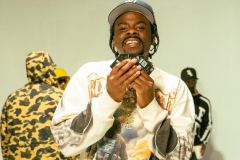
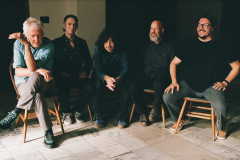

Social Media